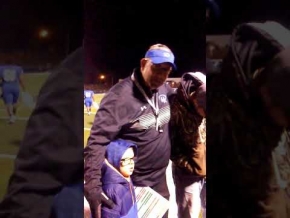Survival Stories: Angel Weers


Breast cancer is a disease that has touched many in the Steel Country area. Each story is as different as the survivors who tell them. Angel Weers’ story is no different: similar in many ways, yet strikingly different in others.
Weers’ story begins in February when she discovered a notable change during her manual breast exams. “I had had several mammograms during my 30s which came back odd. Beginning in November, I was noticing some changes, but by the end of January, I knew it was something that needed to be checked,” said Weers. Weers went in for a mammogram the first of Feb., and was scheduled for a biopsy soon after.
“I went on a Friday for the biopsy, and received a call on Monday morning to call my doctor’s office,” said Weers. When Weers finally got in touch with her doctor, she received wordthat it definitely was cancer. She was diagnosed with stage 2 breast cancer, to which she was given 2 options. She could either have a mastectomy, or opt for a lumpectomy, to be followed by radiation. “It seemed odd to me that one would choose to poison their body with radiation, in an effort to kill any cancerous cells in order to live. It didn’t seem logical,” said Weers. After discussion with doctors, including the radiological oncologist and her primary oncologist, Weers chose the lumpectomy.
Weers just recently completed her chemotherapy treatment, and is to start her radiation soon. From the discovery of her cancer to the lumpectomy was barely over a month, which is different than many cases. “I am fortunate in that we caught it early, and were able to get the procedure done and get started on treatments,” said Weers. One thing that worked in her favor was that she was already established with an oncologist due to other non-cancerous, health problems.
Fighting cancer has not dulled Weers love for her family, which she says was what helped her through this trial. Weers considers herself fortunate that her family is extremely supportive. Even her 11-year old daughter, Karma, whom she says “is her reason for living.” When Weers began losing her long, red hair due to treatments, it was her daughter who cut her hair. “I have tried to be up front, honest, and real with Karma, letting her know that this is just the way things are,” said Weers.
It was Weers' family support that helped her, in more ways than just dealing with the cancer. In fact, it was a tragedy in her family that Weers says put her dealings with cancer into perspective. “Six days after my lumpectomy, we lost my sister, Lori. Honestly, that helped put my situation into perspective,” said Weers. “I knew that no matter how sick I was, or how bad things got, I still had tomorrow. Knowing there was a 12 old, my niece, who would not see her mother again, put things into perspective for me.” Weers also believes she is extremely lucky to have a loving and supportive family, who have been there to help her, as well as an employer who has gone above to make sure she was able to continue working. Weers added that her deep-seeded belief that all one can control is how they respond to situations also played a huge role in keeping her going.
Weers feels fortunate they were able to catch hers early, adding that seeing others whose situations were worse than hers, broke her heart. She also shares that being a survivor makes you want to be sympathetic, even empathetic, towards what others are going through. “I used to believe I was sympathetic towards my sister, who dealt with numerous health problems. But, as much as people say “I understand,” no one really can, until they have faced a similar situation themselves,” said Weers.
Weers’ diagnosis was made public through Facebook. When asked what she would do, if she were browsing Facebook and saw a similar post from someone she knew, her answer was simple: “Be sympathetic. I probably wouldn’t have reached out to many, especially those I did not actually know, before. But now, I feel a desire to reach out to those with a similar situation, because I know. Weers stated that “Survivors connect with other survivors because we need people who ‘get it’,” said Weers. And isn’t that what we all are truly searching for?
- Log in to post comments








